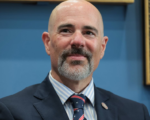The Indigenous Cannabis Industry Association (ICIA) has unveiled the agenda for its upcoming National Indigenous Cannabis Policy Summit, slated for November 13-15 in Washington D.C. This event marks the first major assembly of cannabis advocates in the capital since the 2024 election.
A Diverse Lineup of Speakers and Topics
Hosted by the ICIA, the summit promises a rich blend of voices from various sectors. Tribal leaders, government officials, business owners, healthcare professionals, veterans, and advocacy groups are all set to converge. The goal? To tackle the pressing challenges and seize opportunities within the Indigenous cannabis community.
Judge Mary Celeste from Denver will kick off the educational sessions, alongside Dr. Sherman Hom and Dr. Joseph Rosado from International Medical Consultants. Chenae Bullock of the Shinnecock Nation and Mike Fairbanks, chairman of the White Earth Reservation, will also share their insights.
Rob Pero, founder of the ICIA and Canndigenous, expressed his enthusiasm: “This is a pivotal time for making change in the cannabis industry and creating sustainable opportunities for Indigenous communities.” He emphasized the summit’s role in amplifying key voices and laying the groundwork for equitable cannabis policies.

Exploring Hemp and Sustainability
One of the summit’s main focuses is industrial hemp. Attendees will delve into topics like building with hempcrete, understanding regulatory needs, and implementing sustainable practices for the long-term growth of the hemp and cannabis sectors.
- Building with Hempcrete: A sustainable alternative to traditional construction materials.
- Regulatory Needs: Navigating the legal landscape for hemp businesses.
- Sustainable Practices: Ensuring environmental responsibility in cultivation and production.
A detailed look at hempcrete’s potential impact:
| Aspect | Traditional Materials | Hempcrete Benefits |
|---|---|---|
| Carbon Footprint | High | Low |
| Insulation | Moderate | Superior |
| Durability | Variable | Highly Durable |
| Cost | Generally higher | Cost-Effective Long-term |
These discussions aim to provide actionable strategies for Indigenous communities to thrive in the growing hemp market.
Addressing Health and Legal Concerns
The summit isn’t just about business growth; it’s also about health and legal frameworks. Sessions will cover the legal aspects of hemp derivatives like CBD and Delta-8, as well as the health risks associated with improper cannabis cultivation. There’s a particular emphasis on the connection between PTSD and endocannabinoid deficiency, highlighting the plant’s potential therapeutic benefits.
“But it’s not just about increasing access to plant medicine,” Pero added. “We’re also discussing sustainable practices that help Indigenous communities diversify within an industry that’s already federally legal and expanding.”
This comprehensive approach ensures that the summit addresses both the opportunities and the responsibilities that come with the cannabis industry’s growth.
Practical Lessons from Other Industries
Another intriguing aspect of the summit is the exploration of how the gaming industry can offer practical lessons to the cannabis sector. This cross-industry dialogue aims to foster innovation and improve business practices within the cannabis community.
Implications of Cannabis Rescheduling
Rescheduling cannabis can have significant implications for business owners and patients alike. The summit will delve into what these changes mean for the industry, including:
- Business Operations: How rescheduling affects licensing and compliance.
- Patient Access: Improved access to medicinal cannabis for those in need.
- Research Opportunities: Expanded research possibilities with fewer restrictions.
Using data to drive policy is another key topic. By leveraging statistics and real-world evidence, the summit aims to formulate policy recommendations that are both effective and equitable.
Building a Sustainable Future
Sustainability is a recurring theme throughout the summit. From cultivation practices to business models, the focus is on creating a resilient and environmentally responsible cannabis industry that benefits Indigenous communities.
“Creating sustainable opportunities is crucial for the long-term success of our communities,” Pero emphasized. “We’re looking at every aspect, from cultivation to policy, to ensure that the growth we see today translates into lasting benefits.”
Networking and Collaboration Opportunities
Beyond the formal sessions, the summit offers ample opportunities for networking and collaboration. Attendees can connect with like-minded individuals, share experiences, and forge partnerships that will drive the industry forward.
It’s not just about what happens during the summit; it’s about the lasting connections and initiatives that will emerge from these three days in D.C.
Looking Ahead
As the cannabis industry continues to evolve, events like the Indigenous Cannabis Policy Summit play a crucial role in shaping its future. By bringing together a diverse group of stakeholders, the ICIA is fostering an environment where Indigenous voices are heard and respected.
The outcomes of the summit are expected to influence policy decisions and business practices, ensuring that the growth of the cannabis industry aligns with the values and needs of Indigenous communities.
David Johnson is a respected writer known for his expertise in crafting compelling articles about cannabis. With a passion for exploring the intersection of cannabis, health, and wellness, he sheds light on the therapeutic properties and potential uses of this versatile plant. David’s in-depth analysis and thought-provoking commentary offer readers a deeper understanding of the evolving landscape of cannabis legislation, consumption methods, and industry trends.








